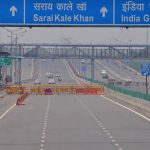The Naga Students’ Federation (NSF) has submitted a nine-point memorandum to the Nagaland Chief Minister, highlighting pressing issues affecting the political, social, and administrative future of the Naga people. The federation requested immediate government action on matters of critical importance.
NSF Reaffirms Commitment to Naga Principles
In the memorandum, signed by NSF President Mteisuding and General Secretary Kenilo Kent, the federation reiterated its dedication to upholding its founding principles. While acknowledging positive steps by the current state government, NSF stressed that several existential issues required urgent attention.
1. Indo-Naga Political Issue
NSF emphasized that the Indo-Naga political question is central to the Naga identity and existence.
The federation appreciated the formation of the Core Committee on the Naga Political Issue, but urged the government to move beyond symbolic gestures. NSF called for:
-
Inclusive dialogue involving all Naga communities across state and national boundaries
-
Integration of Naga territories in line with historical and political aspirations
-
Facilitation of high-level political discussions without preconditions for an honorable and lasting solution
NSF urged the CM to act proactively and decisively on this historic issue.
2. Influx of Illegal Immigrants
The federation termed unchecked immigration as an existential threat to Nagas.
Despite 150 years of the Inner Line Pass (ILP) system, enforcement remains weak. NSF highlighted the Inner Line Regulation Commission (ILRC) formed in December 2024 to monitor illegal settlements.
NSF recommended:
-
Establishing a special commission for ILP enforcement
-
Creating a centralized database for ILP issuance
-
Opening ILP offices and checkpoints at Dimapur railway station and airport
-
Forming district-level enforcement wings
-
Conducting awareness programs with village councils, student groups, and civil organizations
3. Illegal Appointments
NSF raised concerns over backdoor appointments in state departments, calling them “cancerous” to transparency and meritocracy.
The federation demanded:
-
Immediate halt to unauthorized recruitments
-
All appointments strictly via NPSC or NSSB
-
Accountability measures against officials responsible for illegal hiring
4. Upgradation of Khelhoshe Polytechnic
NSF urged the upgradation of Khelhoshe Polytechnic Atoizu (KPA) into a full-fledged Government Engineering College starting academic year 2026–27, promoting technical self-reliance and reducing dependence on external institutions.
5. Indigenous Representation in Universities
The federation stressed the need for indigenous representation in Nagaland University and NIT Chümoukedima. NSF recommended at least 80% of teaching and non-teaching positions be reserved for indigenous Nagas, citing Article 371(A) and rising unemployment among qualified youth.
6. E-Governance and Transparency
NSF highlighted the importance of e-governance to improve transparency and accountability.
Recommendations include:
-
Compliance with Government of India’s Guidelines for Indian Government Websites (GIGW)
-
Public access to departmental schemes, beneficiaries, and vacancies
-
Expansion of digital platforms to engage citizens, especially in rural areas
-
Promoting internet-based public services to reduce corruption
7. Youth Empowerment and Self-Reliance
The federation urged the government to empower youth through skill development, technical training, and entrepreneurship.
NSF proposed:
-
Each of the 60 MLAs sponsoring UPSC aspirants for coaching and mentorship
-
Strengthening vocational training programs under NEP 2020
-
Expanding the CM Micro Finance initiative for youth empowerment
8. Repeal of AFSPA
NSF reaffirmed its stance on the complete repeal of AFSPA in Naga areas, calling it a draconian law causing human rights violations.
The federation demanded that the state government amplify this call at all levels and maintain non-cooperation with the Indian Armed Forces until AFSPA is fully repealed.
9. Free Movement Regime and Border Fencing
NSF condemned the scrapping of the Free Movement Regime (FMR) and the border fencing along Indo-Myanmar boundary.
The federation warned that such measures threaten Naga ancestral lands, sever social and cultural ties, and escalate regional conflicts.
NSF urged the government to oppose these policies and advocate solutions that respect traditional cross-border relations, fostering peace and unity.
Conclusion
NSF emphasized that these are existential, political, and developmental concerns affecting the future of the Naga people. The federation assured continued cooperation with the government to promote justice, transparency, and holistic development, and expressed confidence that under the chief minister’s leadership, Nagaland will move toward peace, accountability, and progress.









